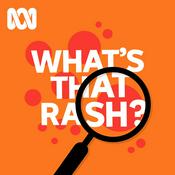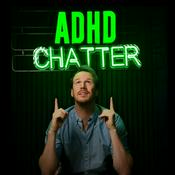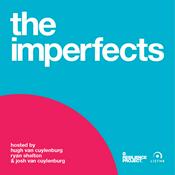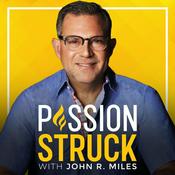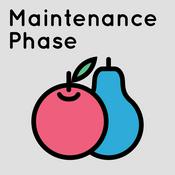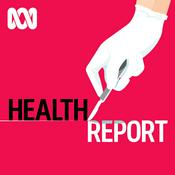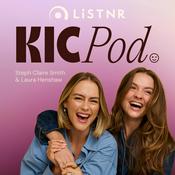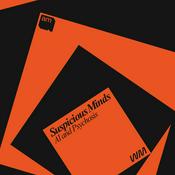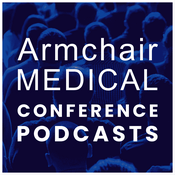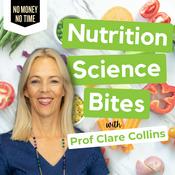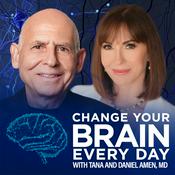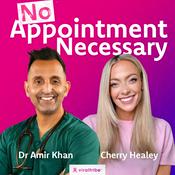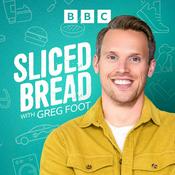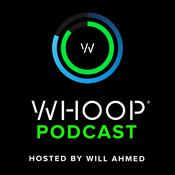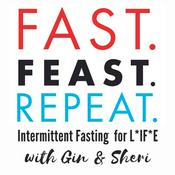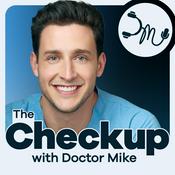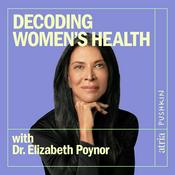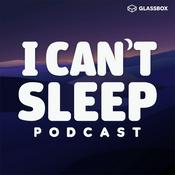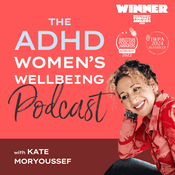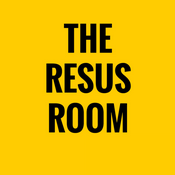Wellness, Actually with Emily Oster & Perry Wilson, MD
iHeartPodcasts
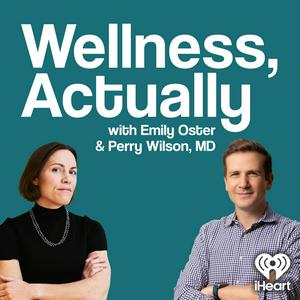
Latest episode
88 episodes
- In our inaugural episode, Emily and Perry talk all things sperm: if it's on the decline, how to juice its quality, the perils of tight underwear, and what a high sperm count says about your manliness (spoiler: absolutely nothing).
Plus, vitamin K shots at birth, the keto diet to treat schizophrenia, and, in honor of the Olympics, whether penis pumping helps your air time.
Submit a question for our weekly mailbag at wellnessactually.fm.
See omnystudio.com/listener for privacy information. - GLP-1s. Colostrum. Microplastics. Red light therapy. Vaccines. There’s a staggering amount of health and wellness news and information, and it’s bombarding us everywhere we look. Who’s got time to parse it out, to verify it, and then to actually do the work of improving our health? And what if those wellness influencers actually knew how to read a medical study?
That’s why we’re here. We are Emily Oster, best-selling author and data expert, and Perry Wilson, a medical doctor. And our goal is to separate fact from fiction, causality from correlation, so that you can stay informed without being overwhelmed. Every episode, we cover the health news of the week, take listener questions, and do a deep dive into a buzzy and misunderstood wellness topic so that you can actually make the best decisions for your own health.
So join us for a weekly dose of sanity. It might actually be just what the doctor, and the economist, ordered: health advice for real life.
See omnystudio.com/listener for privacy information. - For many people, when we start thinking about a family, we assume it'll just happen nine months from the moment we start trying. But that isn't the way it happens for all of us. And fertility can often be a journey that's more winding and more complicated and more confusing than we expected it to be. That's why ParentData has launched a new content vertical, Trying to Conceive (TTC), covering everything from ovulation windows to donor eggs to infertility treatments, along with a newsletter all about infertility treatment in particular, which aims to answer all of your questions with data. It's our mission to provide real evidence-based information so you can make the best decisions for your family.
Today on ParentData, we're airing the audio from an event Emily did with three of the people who have contributed most to our new initiative: Dr. Breonna Slocum, a reproductive endocrinologist and fertility specialist, Marea Goodman, a licensed midwife and author, and Dr. Pooja Lakshmin, a perinatal psychiatrist. This roundtable of experts discuss about where to start with fertility, answer audience questions in real time, and consider what they all wish that they knew before starting the journey of trying to conceive.
Explore to Trying to Conceive on ParentData.org, where you can also access new articles every week on data-driven pregnancy and parenting.
This episode is generously supported by:
Hatch
LMNT
StrollerCoaster Podcast
See omnystudio.com/listener for privacy information. - When you look at the data, it is true that after people have kids, marital satisfaction declines. Having a baby drastically changes everything in your partnership that was familiar, that was predictable, that you got used to. And some of those are the reasons you got into the relationship in the first place.
That’s the reality of having kids. And as much as we love them, it can be an incredible shock to the system. There were date nights, there were lazy Sunday mornings in bed, and now there are feedings and diaper changes, feeling touched-out, packing school lunches the night before or at 5:45 in the morning. To paraphrase Ethan Hawke’s character from Before Sunset: We used to be in love. Now we’re roommates who run a day care together.
Today on ParentData, we're joined by Dr. Yael Schonbrun, a clinical psychologist, an author, and a researcher who focuses on the science and data behind healthier, happier relationships. And she’s here to help you baby-proof your relationship. Take heart: for many — probably most — couples, this issue is not hopeless.
Subscribe to ParentData.org for free access to new articles every week on data-driven pregnancy and parenting.
This episode is generously supported by:
Hatch
LMNT
StrollerCoaster Podcast
See omnystudio.com/listener for privacy information.
More Health & Wellness podcasts
Trending Health & Wellness podcasts
About Wellness, Actually with Emily Oster & Perry Wilson, MD
A staggering amount of health and wellness news and information is bombarding us everywhere we look – and who’s got time to parse it out, to verify it, and then to actually do the work of improving our health?
We do! We are Emily Oster, best-selling author and data expert, and Perry Wilson, a medical doctor. And unlike the influencers, we actually know how to read a medical paper. This podcast separates fact from fiction, causality from correlation, so that you can stay informed without being overwhelmed. Every episode, we cover the health news of the week, take listener questions, and do a deep dive into a buzzy and misunderstood wellness topic so that you can actually make the best decisions for your own health.
Podcast websiteListen to Wellness, Actually with Emily Oster & Perry Wilson, MD, What's That Rash? and many other podcasts from around the world with the radio.net app

Get the free radio.net app
- Stations and podcasts to bookmark
- Stream via Wi-Fi or Bluetooth
- Supports Carplay & Android Auto
- Many other app features
Get the free radio.net app
- Stations and podcasts to bookmark
- Stream via Wi-Fi or Bluetooth
- Supports Carplay & Android Auto
- Many other app features


Wellness, Actually with Emily Oster & Perry Wilson, MD
Scan code,
download the app,
start listening.
download the app,
start listening.

